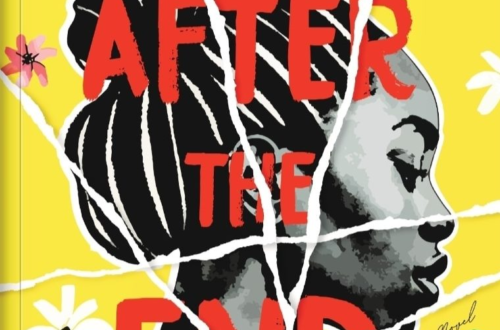
Reviewer: Molara wood
Kate Apaflo Awuku-Darko’s My Girl Child, a poignant entry in her collection Seven Shredded Sisters, speaks with profound tenderness and urgency, addressing the complexities of girlhood in the shadow of societal expectations. This poem is a striking examination of resilience, vulnerability, and the quiet rebellion of a young girl navigating the confines of tradition.
At its heart, My Girl Child is a deeply empathetic exploration of identity, self-awareness, and the conflict between individuality and cultural imposition. Awuku-Darko captures the weight of inherited customs with the haunting line, “you worry about the nightmares / of your thighs being sliced,” an explicit reference to the violent rites of passage faced by many young girls. The poet juxtaposes this stark reality with an undercurrent of hope, embodied in “the light you carry in your heart / to bless the world.”
The poem critiques “frostbite traditions” with subtle defiance, framing them as obstacles to self-actualization. The tension between the girl’s private reflections and the oppressive external forces highlights the universal struggle for autonomy in a world that often seeks to define and limit women.
Awuku-Darko’s use of imagery is both delicate and evocative. The opening lines, “I see the beam of life / Criss-crossing the plains / of your mind,” set a tone of introspection and vitality. The metaphor of a desert within the mind evokes a sense of isolation, while the “shrubs of curiosity” suggest resilience and growth amidst barren circumstances.
The poem’s pivotal moment—pouring milk into a china cup—becomes a powerful metaphor. The “bulbous sediments” settling beneath the steam mirror the girl’s internal question: Will she conform to the sedimentation of tradition, or will she rise above it, like mist dissipating into freedom?
The free verse structure allows the poem’s emotions to flow naturally, echoing the girl’s stream of consciousness. Awuku-Darko’s careful use of enjambment creates a rhythmic unease, drawing attention to critical moments: “hands held under your quivering breath / waiting for a humane disruption.” This technique heightens the tension, pulling the reader into the protagonist’s quiet resistance.
My Girl Child goes beyond individual experience to critique the larger societal structures that perpetuate oppressive customs. By focusing on the internal life of the girl, Awuku-Darko humanizes the often-overlooked victims of these traditions. The poem invites readers to question not only the customs themselves but also their complicity in upholding them
With My Girl Child, Kate Apaflo Awuku-Darko crafts a deeply affecting meditation on the intersection of tradition and individuality. Her vivid imagery and compassionate voice make the poem both personal and universal, a resonant cry for humane disruption. It is a testament to her ability to give voice to the silenced while urging readers to reflect on the transformations necessary for a more just and empathetic world. This poem is both an act of resistance and a celebration of the enduring strength of the human spirit.





